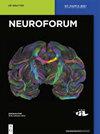Clinical implications of fear extinction in anxiety disorders
Q3 Medicine
引用次数: 5
Abstract
Abstract Anxiety disorders (ADs) are characterized by increased chronicity and comorbidity with other ADs. Although exposure is the most effective therapy option for ADs, some patients show poor treatment response and a heightened vulnerability for relapse after treatment completion. Hence, significant research effort needs to be devoted to improve the long-term effectiveness of exposure effects. Recent attempts to increase exposure therapy efficacy use strategies aimed at promoting the acquisition and retrieval of extinction memories. The present review illustrates the value and limitations of such extinction-based therapy approaches. We present and discuss recent findings from translational studies using cortisol and self-efficacy enhancement as an add-on to exposure therapy. We illustrate how the integration of findings from experimental research on fear extinction learning and self-efficacy could advance the development of more optimized treatments for ADs.焦虑障碍中恐惧消退的临床意义
摘要焦虑症(AD)的特点是与其他AD的慢性病和合并症增加。尽管暴露是AD最有效的治疗选择,但一些患者在治疗完成后表现出较差的治疗反应和更容易复发。因此,需要投入大量的研究工作来提高暴露效应的长期有效性。最近,为了提高暴露治疗的疗效,使用了旨在促进灭绝记忆的获取和检索的策略。本综述阐明了这种基于消光的治疗方法的价值和局限性。我们介绍并讨论了使用皮质醇和自我效能感增强作为暴露疗法的补充的转化研究的最新发现。我们展示了将恐惧消除学习和自我效能的实验研究结果相结合,可以促进AD的更优化治疗方法的发展。
本文章由计算机程序翻译,如有差异,请以英文原文为准。
求助全文
约1分钟内获得全文
求助全文
来源期刊

Neuroforum
NEUROSCIENCES-
CiteScore
1.70
自引率
0.00%
发文量
30
期刊介绍:
Neuroforum publishes invited review articles from all areas in neuroscience. Readership includes besides basic and medical neuroscientists also journalists, practicing physicians, school teachers and students. Neuroforum reports on all topics in neuroscience – from molecules to the neuronal networks, from synapses to bioethics.
 求助内容:
求助内容: 应助结果提醒方式:
应助结果提醒方式:


